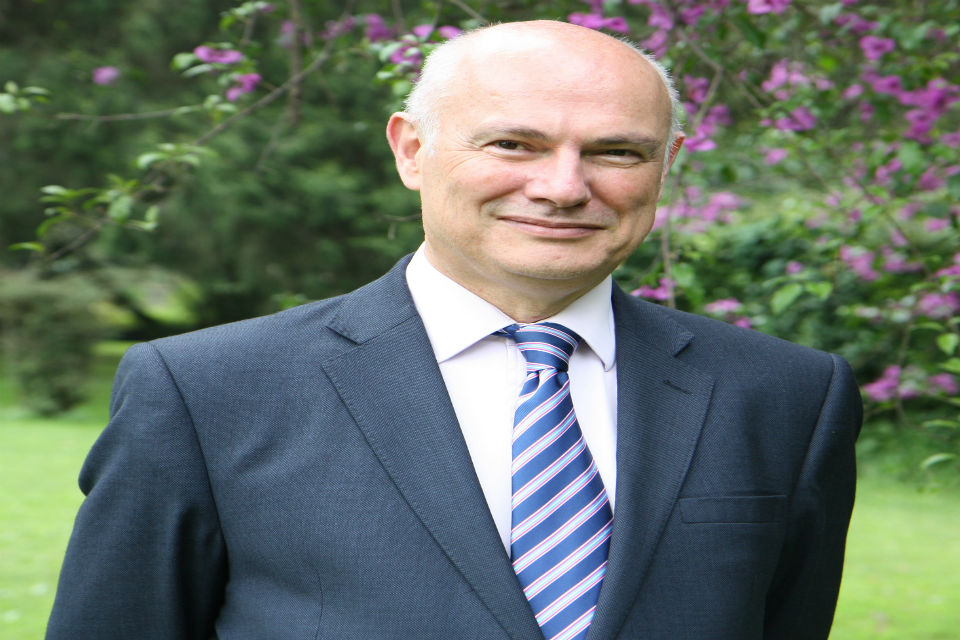Panel discussion on the elimination of violence against women
HMA Greg Dorey made a speech at a panel discussion in Addis Ababa University on Wednesday 4 December 2013

Excellencies, ladies and gentlemen.
Thank you all for coming to our event. It shows that many people, including senior officials at the University, are very interested in the issue we are discussing today. I believe we cannot draw too much attention to Gender Based Violence because it still is a growing problem in our world. Sadly, we are exposed to daily and highly disturbing accounts of rape, abuse and other forms of violence against women.
Last year our Embassy celebrated the International 16 days of activism against Gender Based Violence here in collaboration with Addis Ababa University’s Gender office. We invited Yanet Seyoum, Ethiopia’s first Olympic swimmer, to share her London 2012 Olympics experience with students. Although the key aim of the current campaign is to end violence against women, it is also vitally important to stress the other side of the coin - to highlight the full potential of every girl and woman when they grow up in a safer and more equal environment.
We have invited here today some experienced diplomats – my Israeli and Netherlands colleagues and Hirut Befekadu (who has had a career in the UN and AU) - to share their experience with you from a foreign policy and personal perspective. It would be great if, as a by-product, more students became interested in working in diplomacy after hearing the panellists today. More importantly I want to see more students aspire to leadership roles, regardless of their gender. Our Embassy is currently supporting a project with the Centre for Creative Leadership to establish girls debate clubs in colleges and universities. We strongly believe that this project can help students develop basic skills not only in public speaking but leadership too, acquiring the confidence to argue their stand on important issues and therefore influence policies in the future.
As you have seen, we are wearing white ribbons throughout the 16 days to encourage not only women and girls but also boys and men to speak out against such violence. I hope that wearing the white ribbons won’t just be symbolic. I hope that the awareness we are creating, including at today’s event, will lead to action on the ground. I heard an inspirational speech last week from Dr Bogaletch Gebre, who in 1997 established her organisation Kembatti Mentti Gezzimma (KMG) which seeks to empower women; tackle HIV/AIDS; and stop harmful traditional practices. She stressed that everyone has a role to play in their community to make sure Gender Based Violence becomes extinct. She is indeed a living proof of how the solution to what seem like overwhelming problems starts with the individual. Individuals just like you.
In the UK, our Foreign Secretary William Hague is determined to eradicate the use of rape in conflicts. Sexual violence is used in conflict because it is cheap, easily concealed and strikes at the most vulnerable people. In the last year significant progress has been made, particularly at the G8 in London in April and at the UN Security Council in June, where we unanimously secured Resolution 2106 on this subject. And progress continued during the UNGA when 134 states endorsed a new Declaration of Commitment to eradicate sexual violence in conflict. Let’s not forget that violence against men and boys as well as women and girls – even if the numbers of those affected vary – is included in this initiative.
In Ethiopia, violence against women and girls is widespread, with 68% of women believing that wife beating is justified. Early marriage is still pervasive in many parts of the country which means that girls are more likely to have early pregnancy, less likely to complete their schooling and will have impaired options for economic empowerment.
I am delighted that Dr. Hirut Woldemariam, vice president of Addis Ababa University is supporting us in today’s event by moderating the panel discussion. I also look forward to the interesting discussion that will be organised by the Yellow Movement to drive our thinking and help us visualise a world free of gender based violence. The Yellow Movement also launched a social media campaign to get their voices heard and to galvanise more support for the campaign. I very much appreciate the innovative mechanisms that they are employing to promote much needed change.
I hope you have also enjoyed the new video by the Ethiopian girl band ‘Taitu’ that was shown earlier. As you have seen Yegna’s music is designed to inspire girls through their lyrics as well as driving people to listen to the drama – and the band has already had two live concerts.
Finally, I hope that you find the discussions today very fruitful and it will encourage all of you to contribute to ending Gender Based Violence.